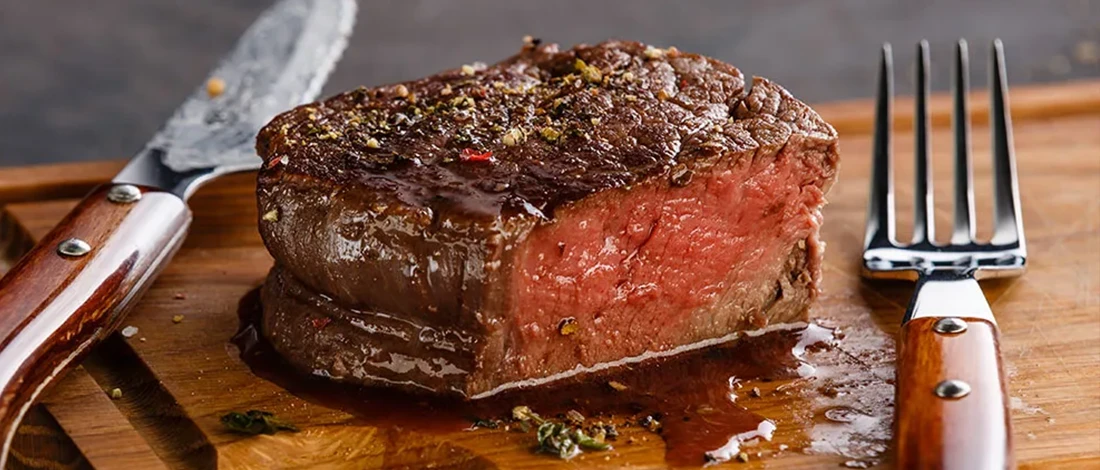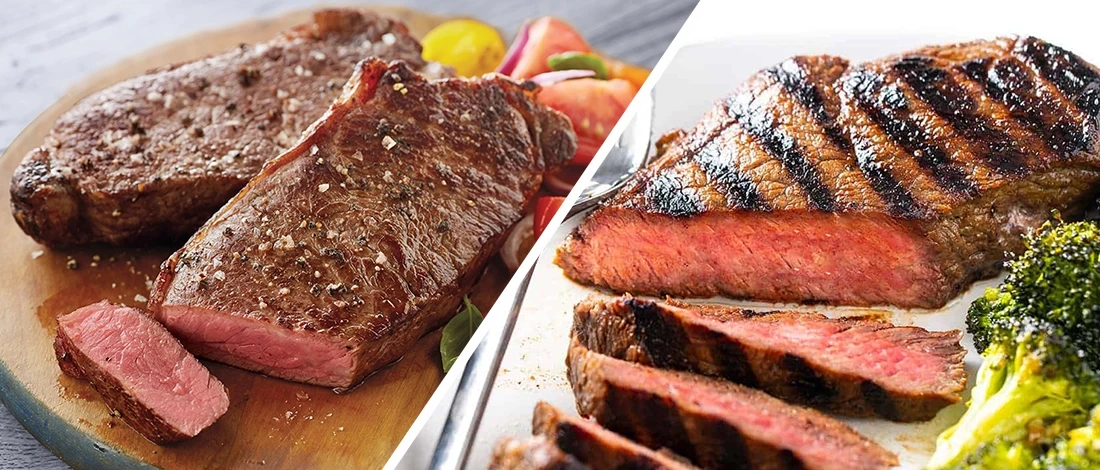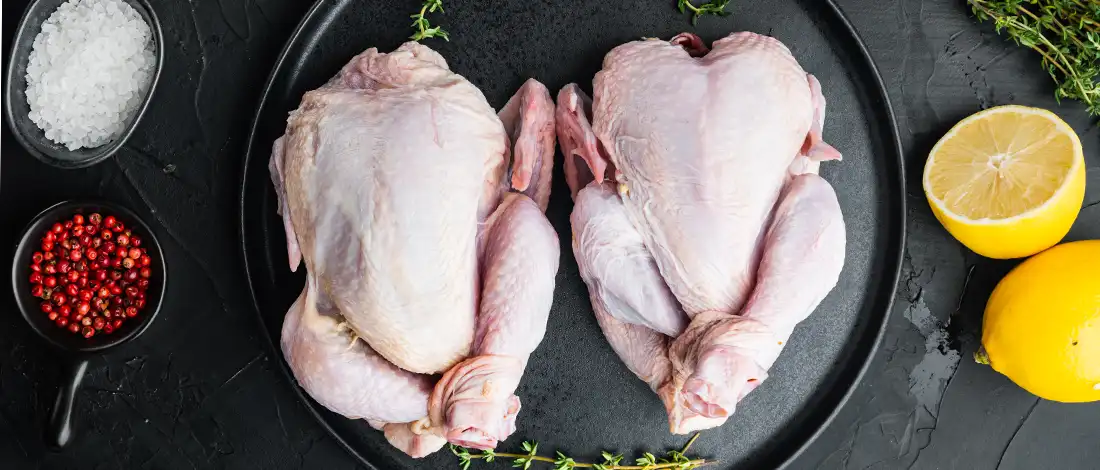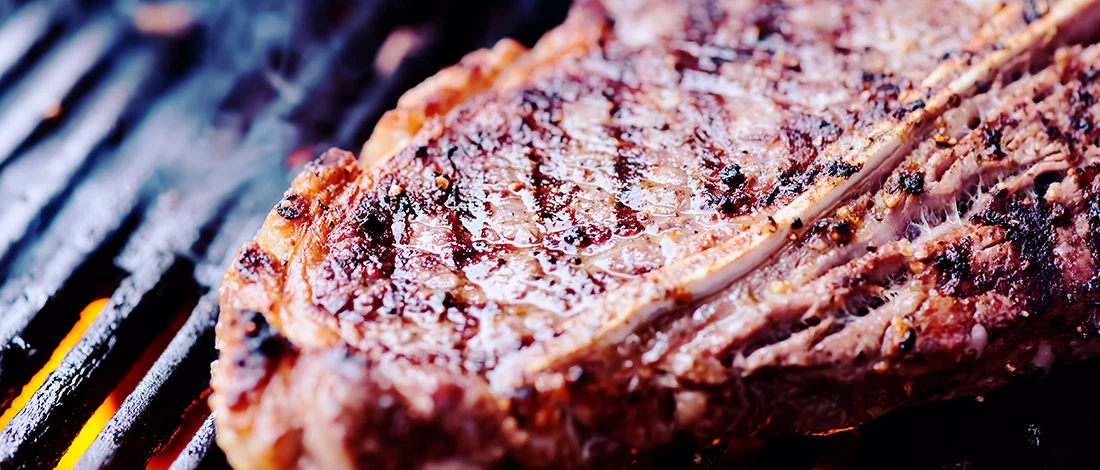As someone who has been faithfully following the Lion Diet for over seven years, the question I'm often asked is whether this particular dietary approach offers real health benefits—and if it's a lifestyle choice worth embracing.
At Carnivore Style, we understand the importance of researching and fully understanding any diet, especially one as unique as the Lion Diet.
To offer a more informed perspective, I've delved into peer-reviewed research and consulted extensively with my dietitian. My goal has been to amass a well-rounded understanding of both the advantages and disadvantages of this diet.
So, if you're as curious about the Lion Diet as I am committed to it, I invite you to continue reading and exploring this captivating topic with me.
Quick Summary
- The Lion Diet involves eating only meat from ruminant animals.
- The diet cuts on products that usually add more calories to the body, such as sweeteners and desserts.
- Adopting the Lion Diet can slow the course of epilepsy, neurological illnesses, and Alzheimer's.
What Is a Lion Diet?
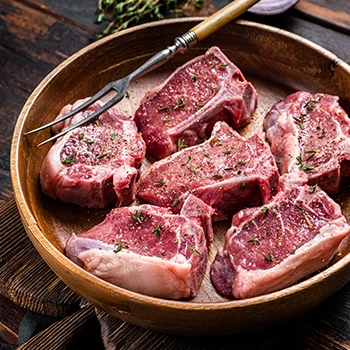
The Lion Diet is a type of elimination diet that involves gradually cutting out a wide range of food sources while maintaining a consistent nutritional intake.
A nutrition blogger called Mikhaila Peterson came up with the concept first. She created this diet intending to enhance her autoimmune mechanism and mental wellness.
The diet resembles the Atkins and Carnivore diets because you are only permitted to eat meat, poultry, and fish products [1].
However, because it prohibits salt and water consumption, it is also more challenging to adhere to.
People who adhere to the Lion Diet reported experiencing more energy, being happier, and having fewer gastrointestinal and autoimmune disorders.
To help you source your meat from reputable companies, we've rounded up the best meat subscription box where you can find a good selection of exotic meat to begin your Lion Diet journey.
Lion Diet Overall Score
Anecdotal evidence suggests that this elimination diet can change your life and enhance your health.
The Lion Diet is an anti-inflammatory diet that leads to mood enhancements and alleviation from symptoms including allergies, sleeplessness, and migraines [2].
Others, observing that it is extremely harsh and rigid, have condemned the approach as unsustainable, harmful, and ineffective.
The diet's total score is listed below:
- Overall score: 0.25
- Healthy eating: 0
- Nutrition quality: 3
- Sustainability: 1
- Weight loss: 1
- Whole body health: 1.5
- Evidence-based: 1
How Does The Lion Diet Work?
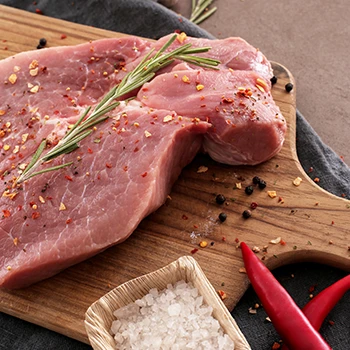
The Lion Diet works by permitting meals consisting of only water, salt, and ruminant meat, such as that from sheep, deer, and cows.
It is thought that restricting your diet to these certain meals can support your body while eliminating other elements to identify possible food sensitivities that might be causing health issues.
You should wait until your symptoms subside before adding other meals slowly, even though there are no formal recommendations on how long you should adhere to the diet.
Peterson suggests that you stick to the diet for a few weeks before starting to reintroduce certain foods into your diet slowly.
This is meant to make it easier to identify the items that worsen your symptoms so you can cut them out of your diet.
In a few of the diet's versions, intermittent fasting measures are also used, such as not eating for 16 to 18 hours or having only one major meal daily. But doing so is voluntary.
Also, don’t disregard professional medical advice before taking up this lifestyle.
Foods to Eat and Avoid

A Lion Diet permits eating certain foods while it eliminates others.
Foods to Eat
You must eat from a rather short selection of foods. These mostly include meat from ruminant animals, like cows.
In actuality, you will exclude all other food types from your diet. The only three foods that will make up the majority of your nutritional intake are:
1. Meat From Ruminants:
- Beef
- Goat
- Sheep
- Deer
- Bison
2. Salt
3. Water
Ask yourself, "What does the lion eat?" and then eat just those particular foods and seasonings.
Foods to Avoid

You will effectively avoid everything that isn't on the aforementioned list of foods.
This implies that you should avoid both junk food and natural foods like fruits, vegetables, nuts, and seeds.
- You must also refrain from eating meat from several non-ruminant animals, including hog, rabbit, bacon, and ham.
- Avoid taking salmon, mackerel, anchovies, and trout.
- You are also prohibited from eating fowl products like chicken, duck, or turkey.
- Avoid using fatty cooking components like coconut oil, olive oil, avocado oil, and butter.
After a short period, you can put these food products back into your diet, but they need to be removed from your everyday diet right away.
Any slip-ups or exceptions won't benefit your body and will likely do more damage than good.
Lion Diet and Weight Loss

Even though weight loss isn't the Lion Diet's primary goal, long-term adherence to the plan will probably result in weight loss.
This is because it cuts out the majority of food categories and many products that are frequently rich in calories, such as desserts, sweeteners, and processed foods [3].
The majority of meat varieties the diet promotes have low-calorie counts.
For instance, whereas a 3-ounce (85 g) portion of cooked steak flank has 225 calories, a 3-ounce (85 g) dish of cooked bison ribeye has 150 calories [4].
“Most of the saturated fat in beef actually decreases your heart-disease risk—either by lowering LDL (bad) cholesterol or by reducing your ratio of total cholesterol to HDL (good) cholesterol.”
- Volek Jeff, Dietician
The diet doesn't provide you with enough calories to fulfill your daily demands, which could make it more difficult to maintain weight reduction over the long run.
Reducing your caloric intake drastically might slow your metabolic activity and alter the levels of some hormones that regulate your appetite and hunger, which may raise the likelihood that you'll gain the weight back [5].
Benefits of the Lion Diet
The Lion Diet is a type of keto diet that has become more popular.
Clinical investigations have previously discovered that a zero-carb diet can offer several advantages [6].
1. Improves Gut Health and Resets the Microbiome in the Gut

The carnivore diet is an eating pattern that proponents claim improves health, specifically gut health.
Studies examining the impact of a general keto diet on gut flora provide credence to these findings.
A 2020 research published in Cell revealed that a very-low-calorie diet (VLCD) altered and enhanced the gut microbiota in ways that decreased inflammatory responses in the body.
The researchers recommended a VLCD diet to treat autoimmune diseases, including leaky gut [7].
Other research revealed that VLCDs improved digestive system health in a manner that diminished multiple sclerosis and epileptic symptoms [8].
2. Removes Anti-Nutrients and Plant Toxins
We've been taught that other elimination diets, particularly vegan, are essential for a healthy diet. But the reality is far more nuanced regarding plant foods and health.
Like people, plants' main objectives are to survive and procreate. They have developed a chemical arsenal to achieve these goals [9].
These are naturally occurring chemicals and substances that are advantageous to plants yet toxic to humans.
Plant toxins and anti-nutrients, such as phytic acid, gluten, oxalate, and phytohormones, are among these substances.
These anti-nutrients can bring on mineral depletion, hormonal abnormalities, and even birth deformities [10].
For example, many legumes and grains contain phytic acid. It can hinder digestive enzymes and stop your body's absorption of essential nutrients, including calcium, copper, zinc, magnesium, and iron [11].
Soy's phytoestrogens have been linked to lower fertility both in women and men [12].
According to scientific theory, these fertility-decreasing compounds aim to lower the numbers of animals, especially humans, who would otherwise ingest them.
A Lion Diet specifically eliminates the consumption of these potentially dangerous substances.
3. Minimizes Inflammation

Like some other extremely low-carbohydrate elimination diets, a meat-based eating pattern can lower inflammatory markers, including C-reactive protein and IL-6 [13].
Reduced inflammation is caused by several circumstances, including:
- Removed bothersome plant toxins
- Improved insulin sensitivity
- Increased consumption of stable saturated fat and omega-3 fats
- Enhanced digestion and intestinal health are directly related to inflammatory reactions.
VLCDs have been shown in several studies to reduce inflammation dramatically.
A low-carb, high-fat diet was compared to a low-fat, high-carb diet in a 2013 research published in Metabolism journal. After 3 months, the high-fat dieters showed decreased indicators of systemic inflammation [14].
A lion's diet may not always be heavy in fat, but a well-designed carnivore diet will favor the fattiest pieces of red meat.
4. Decreases Fiber
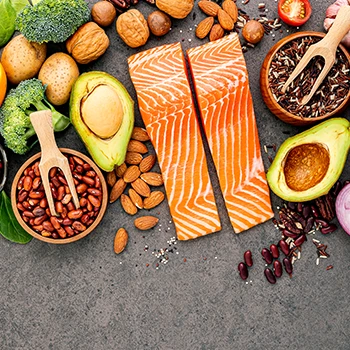
The majority of us have read the fallacy that fiber is important. Recent studies seem to indicate that the contrary may be correct. That fiber really has a negative impact on health.
Fiber can be irritating and fermentable, which can cause bacterial overgrowth, discomfort, and inflammation.
A 2012 World Magazine of Gastroenterology study looked at how cutting back on fiber impacted those with chronic constipation.
Surprisingly, the researchers discovered that people who consumed a lot of fiber did not see any improvement in their health [15].
In contrast, those who entirely cut off fiber saw a substantial decrease in gas, cramping, straining, and inflammatory bowel diseases.
According to 2009 research, women who consumed high-fiber meals had lower levels of hormones and a greater prevalence of anovulation, a major factor of infertility [16].
There is no medical evidence to support the idea that fiber protects against colorectal disorders, according to a thorough evaluation of all prior research conducted in 2007 [17].
Potential Downsides of the Lion Diet

The Lion Diet has several negative aspects because of how severely constrained it is and how the great majority of food categories are completely excluded.
On the Lion Diet, consuming a lot of saturated fat may be problematic [18].
1. It is High in Salt, Fat, and Cholesterol
The beef diet may be rich in cholesterol and saturated fat because it solely includes animal products.
Your heart disease risk may increase due to saturated fat's ability to boost LDL (bad) cholesterol [19].
Many processed types of red meat have high salt content. A high salt intake from the Lion Diet may raise the risk of high blood pressure, renal disease, and other unfavorable health impacts [20].
Consuming processed muscle meat might increase your risk of developing some cancers, including rectal and colon cancer [21].
“If you have a pre-existing chronic condition, like high blood pressure, high cholesterol, any history of stroke or other cardiovascular diseases, you should definitely not try this diet.”
- Kate Patton, RD, MEd
2. It May Be Deficient in Some Micronutrients and Advantageous Plant Compounds
The Lion Diet forgoes nutrient-dense foods, including whole grains, fruits, legumes, and vegetables, since they all contain advantageous vitamins and minerals.
3. Zero Fiber
Only plant-based meals include fiber, a non-digestible carb that supports gut health and regular bowel motions [22]. Lack of fiber in the Lion Diet may cause individuals to become constipated.
Compared to a moderate-carb, high-protein diet, one research of 17 obese men found that a high-protein, low-carb diet drastically reduced their levels of compounds that help to protect from colon cancer [23]
4. Some People May Not Be Suitable for the Lion Diet
For some people, the Lion Diet may pose certain difficulties. For instance, people with chronic renal illness should limit their protein consumption and not follow the diet.
People who have a higher sensitivity to dietary cholesterol, often known as cholesterol hyper-responders, should be cautious about eating so many meals that are rich in cholesterol.
Tips for a Long-Term Lion Diet Success
The following tips will assist you in the near future while preparing you for long-term success with a Lion Diet.
1. Avoiding Protein Poisoning

Protein poisoning can happen if you consume more than 35 percent of your calories from protein.
This happens because your liver loses the capacity to increase urea production, which is necessary to handle large protein loads.
Hyperaminoacidemia, nausea, hyperammonemia, diarrhea, and increased insulin sensitivity are all signs of protein poisoning in extreme cases [24].
On the Lion Diet, choosing fatty steak cuts like ribeye and beef brisket is the greatest defense against protein toxicity.
You might also want to add beef tallow to enhance your body fat level; however, this is a little of a gray area.
Remember that 1 g of fat contains roughly 2 times as many calories as 1 g of protein. Therefore, you only have to consume a 2:1 fat to protein ratio in terms of grams to get a 3:1 ratio in terms of calories [25].
2. Vitamin Deficiencies
Some of the world's most nutrient-dense healthiest foods are ruminant meats. And you can get all the key nutrients you need by eating only meat.
However, certain foods lack essential nutrients like vitamins. This is particularly true for the muscle meats that the majority of consumers like.
Including organ meats in your carnivore diet is crucial to preventing vitamin shortages.
Vitamin C is abundant in the beef spleen, whereas vitamin A and zinc are abundant in beef liver and brain [26].
3. Getting Organ Meats In Your Diet
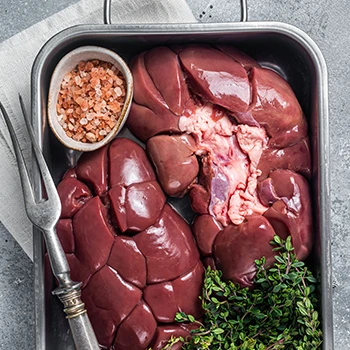
Finding and preparing fresh organ meats of the best quality might be difficult.
Good organ meat supplements are one way to enjoy the advantages of organ meats without the hassle.
Using multi-organ supplements and dried liver increases energy [27].
You might think of them as a natural vitamin supplement. Still, unlike the manufactured variety, they truly get absorbed by your body, especially in conjunction with an animal fat-rich diet.
Although it isn't part of the actual Lion Diet, ketogenic bone broth can support hydration, restore electrolytes, and boost mineral intake while lowering carnivore diet discomfort and diarrhea, which can be frequent during the adjustment [28].
4. Excess Phosphorus
Although phosphorus is a necessary nutrient, a lion's diet requires consuming more than 1000 mg of phosphorus per day. This level is regarded as clinically high.
Research findings on high phosphorus consumption and health effects are conflicting and ambiguous.
According to the majority of research that is accessible, a high phosphorus consumption is probably okay if you're healthy [29].
5. Thyroid Health

According to certain research, long-term ketosis can result in lower T3 or thyroid hormone levels [30].
One explanation is that having sugar/carbs within your diet tells your metabolic activity that you're in a carbohydrate-rich situation.
Many animals live in areas where fruits thrive. So the overall message is that you're in a calorie-dense environment.
The absence of carbohydrates signals to your system that you are in a low-calorie situation. Your metabolism may slow as a response. As a result, your body retains body fat in readiness for metabolization to fuel [31].
To avoid this, slowly reintroduce foods like low-toxin veggies and low-toxin fruits such as berries.
Related Articles:
FAQs
What Does a Lion Diet Consist of?
The Lion Diet consists of meat from ruminant animals like deer, cows, sheep, salt, and water.
Why Does the Lion Diet Work?
The Lion Diet works because you limit yourself to a specific food group while eliminating those that may lead to health issues.
Is Elimination Diet Good for Insulin Resistance?
An elimination diet might be good for insulin resistance because you avoid any type of food with glucose, leading to a reduction in blood sugar.
At Carnivore Style, we want to help you make informed decisions about your diet and health. Check out our other articles and guides for more insights into unique dietary approaches and their benefits.
References:
- https://pubmed.ncbi.nlm.nih.gov/32833688/
- https://www.ncbi.nlm.nih.gov/pmc/articles/PMC6835556/
- https://www.healthline.com/health/food-nutrition/added-sugar-natural-sugar-guide
- https://fdc.nal.usda.gov/fdc-app.html




